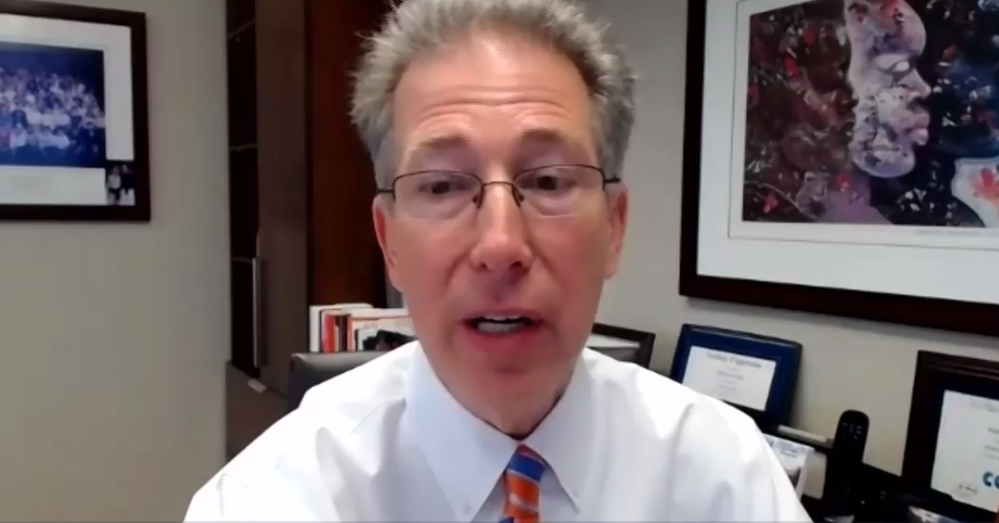Cox Investing $60 Million to Close Distance Learning Gap
Esser says partnerships on effort are key

The smarter way to stay on top of the multichannel video marketplace. Sign up below.
You are now subscribed
Your newsletter sign-up was successful
Saying the COVID-19 pandemic can't be allowed to create an "irreversible" learning gap for students without access to the internet, Cox is teaming up with Common Sense Media to try and do something about it.
Cox President Pat Esser; Michael Powell, president of NCTA-the Internet & Television Association; Common Sense Media CEO Jim Steyer; and others unveiled the initiative at a virtual press conference Tuesday (Sept. 29).
Related: Dems Push $4 Billion for Distance Learning
Esser and Powell unveiled a big bucks initiative during the virtual press conference with Cox pledging $60 million over the next year to help close the digital learning divide.
"Our commitment remains strong, but we cannot do this alone. We need to keep partnering with cities, school districts, counties and community-based organizations to get families connected," said Esser.
Cox will also extend its offer to new Connect2Compete customers. If they sign up by year's end, they will get two months free, followed by $9.95 per month internet. Cox's outdoor WiFi hotspots will also remain open to all comers. Both of those were part of its commitment to keep Americans connected during the pandemic.
The company has also launched Cox CARES Act Solutions for Education to help states and localities spend the billions of dollars in CARES Act COVID-19 aid that can be used for distance learning.
The smarter way to stay on top of the multichannel video marketplace. Sign up below.
Elsewhere on the cable broadband front, Charter has re-instituted its pandemic-prompted 60-day free internet/WiFi offer for homes with K-12 and college kids, as well as for teachers.
As schools attempt to reopen virtually, or with a mix of in-person and virtual instruction, making sure as many students--and teachers--have access to broadband as possible is more important than ever. FCC Chairman Ajit Pai has freed up more funding as well as pushing Congress to allocate more funds for distance learning and states to use some of the billions already available for distance learning, while Hill Democrats have been pushing Pai to interpret the FCC's E-rate broadband subsidy restriction on funding to classroom broadband and equipment to include remote learning and equipment for the "home" classroom, something Pai has so far said the statute does not allow.
Contributing editor John Eggerton has been an editor and/or writer on media regulation, legislation and policy for over four decades, including covering the FCC, FTC, Congress, the major media trade associations, and the federal courts. In addition to Multichannel News and Broadcasting + Cable, his work has appeared in Radio World, TV Technology, TV Fax, This Week in Consumer Electronics, Variety and the Encyclopedia Britannica.

